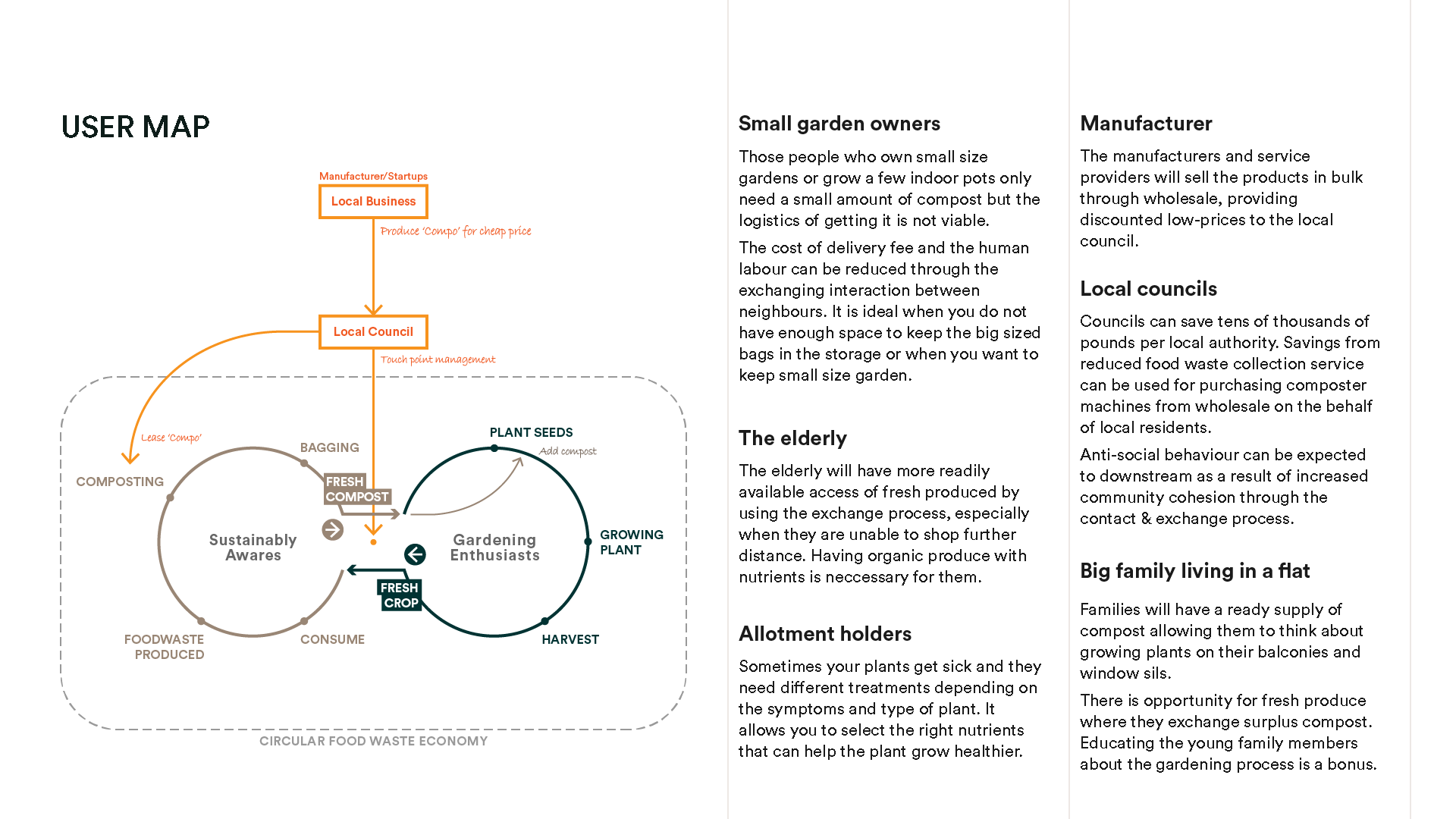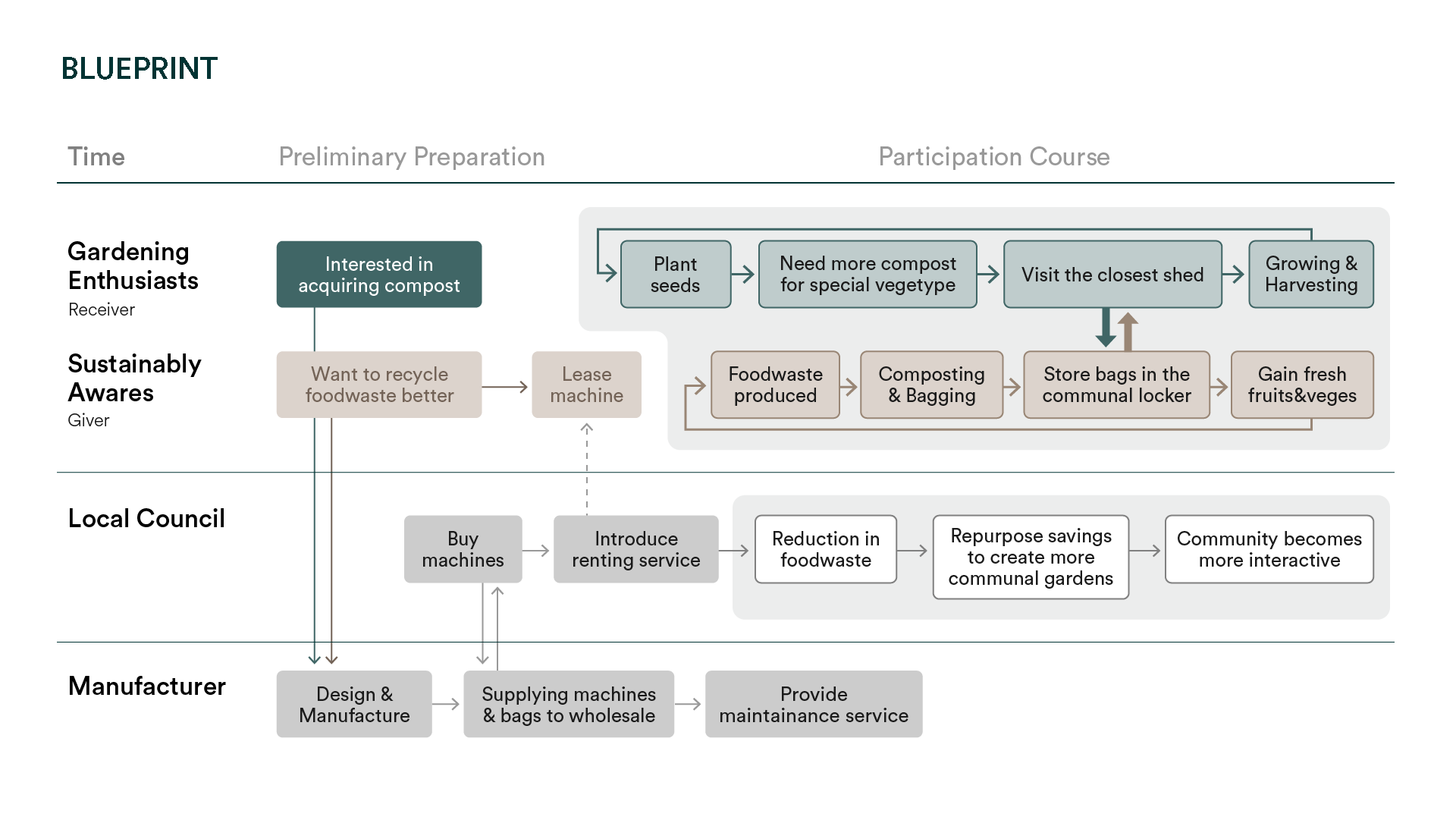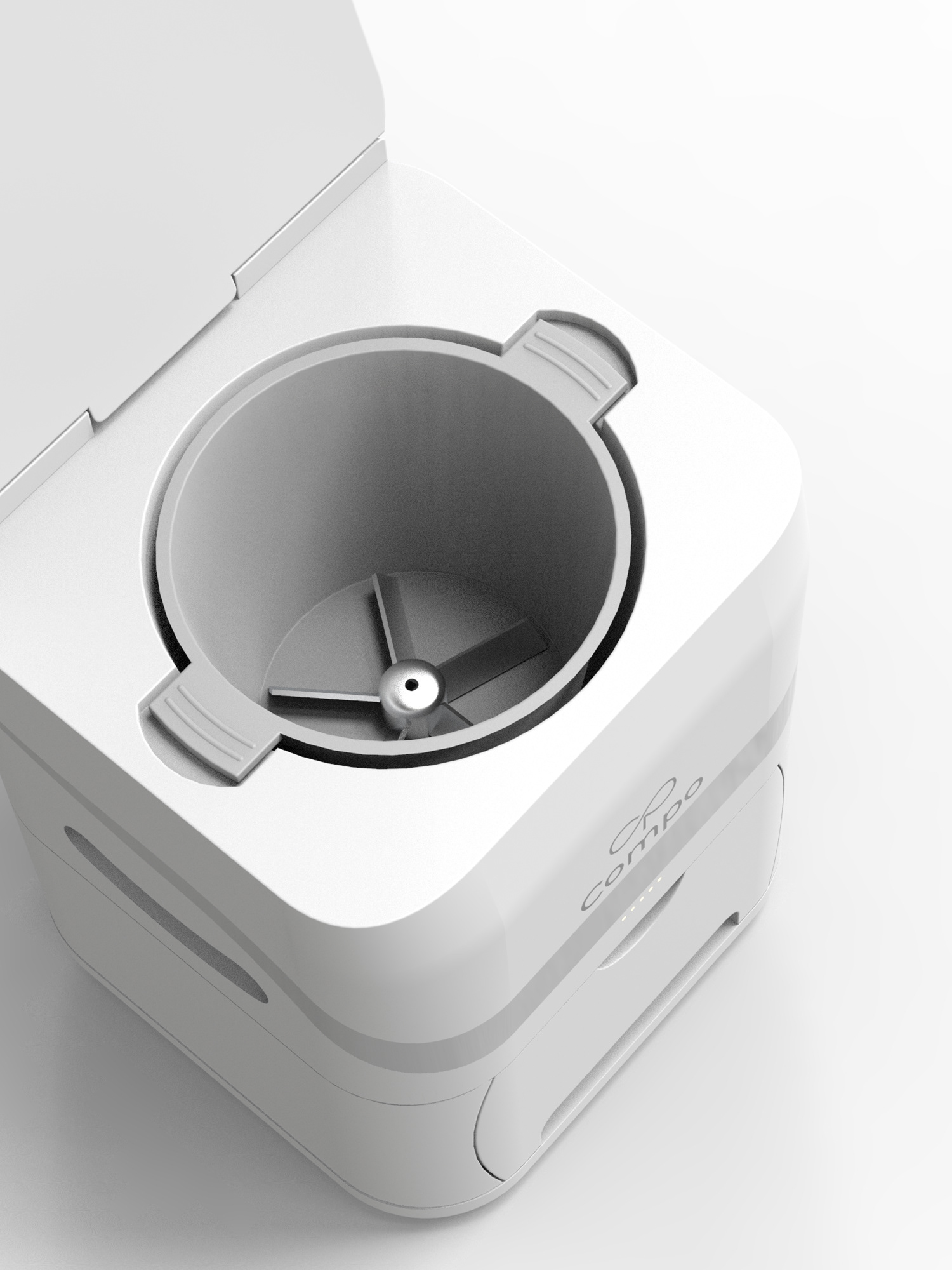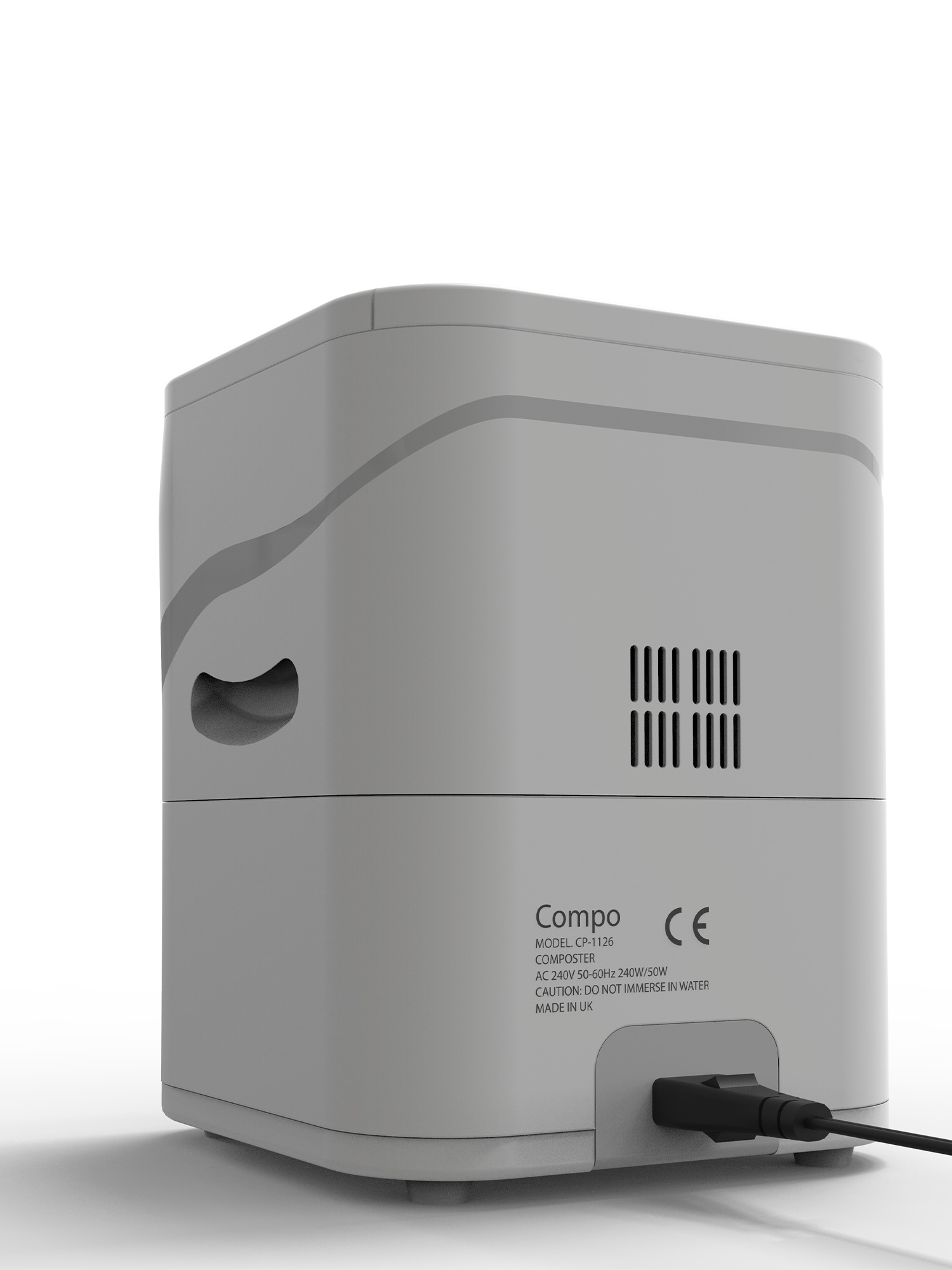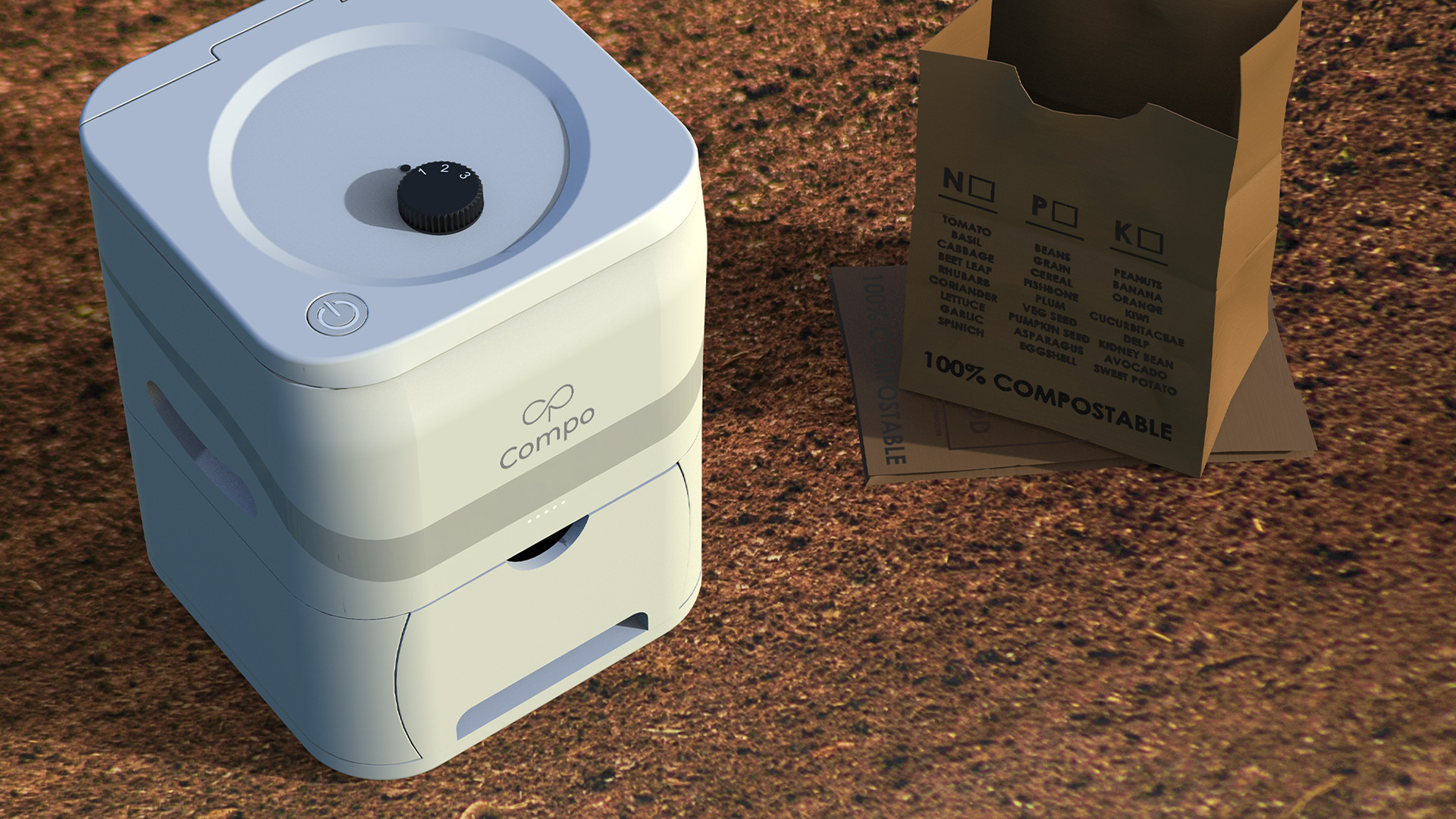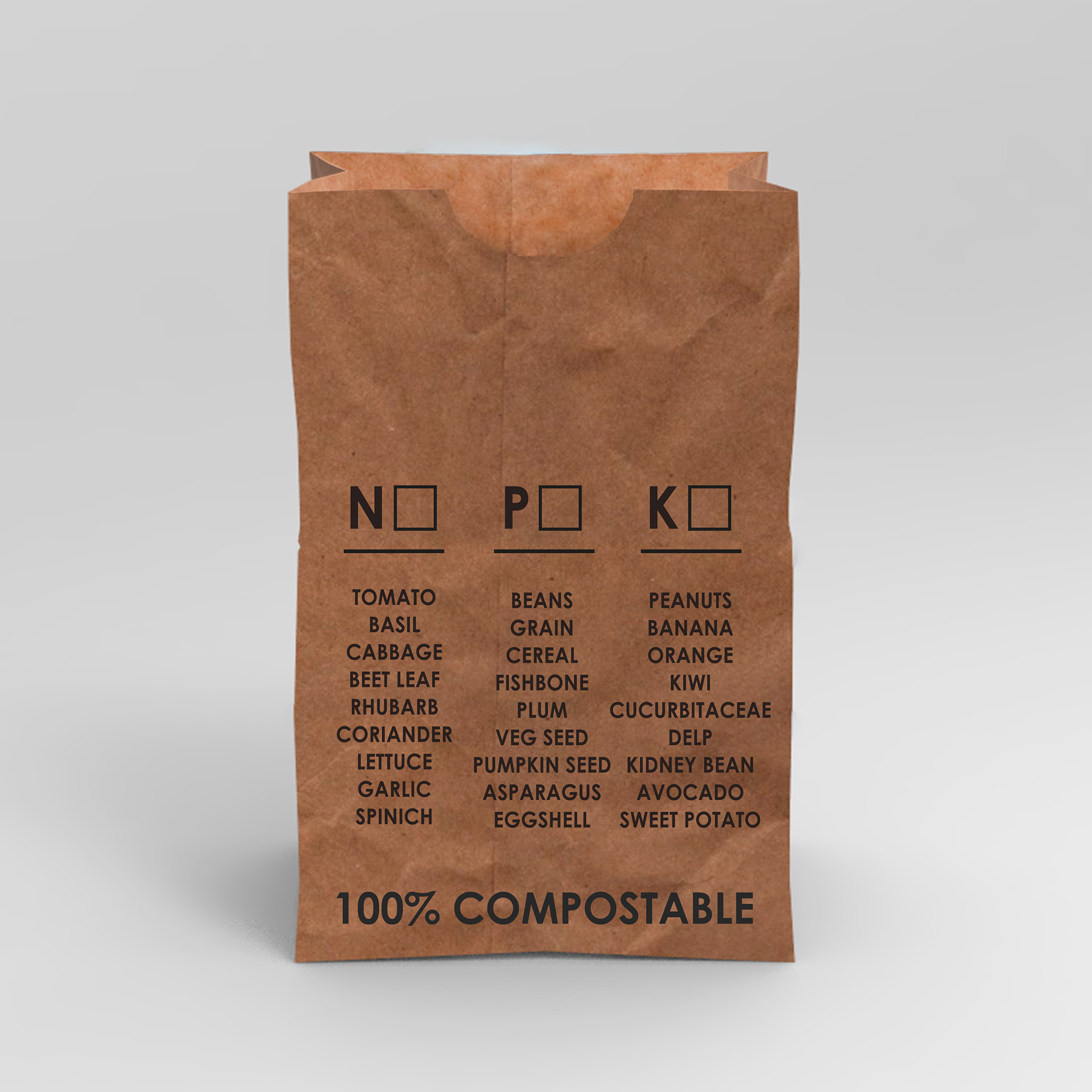Compo
A composting machine that brings together community members as well as local authorities through the system of reviving the value of food
It was reported that up to 1/3 of food produced around the world is wasted every year. On average, approximately 200g of food waste is produced by individuals every day; building up to around 280kg of food waste produced from each household. Only 12% of collected food waste is actually recycled according to the WRAP. How each borough deals with food waste varies depending on the council’s regulations. Some do not even provide food waste collecting services, which results in residents throwing their food waste into their regular bins.
Compo is regarded as an exemplary tool to facilitate the process of composting. There are two fundamental advantages of using this product. Compo is technologically designed in a way in which the speed of composting is accelerated. This means that discarded food waste will be produced as compost in a much shorter period of time. Compo is also targeted to all consumers, marketed at an affordable cost so that everyone is able to utilise.
Material 12mm plywood
Dimension 1270 x 600 x 720mm
Dimension 1270 x 600 x 720mm
